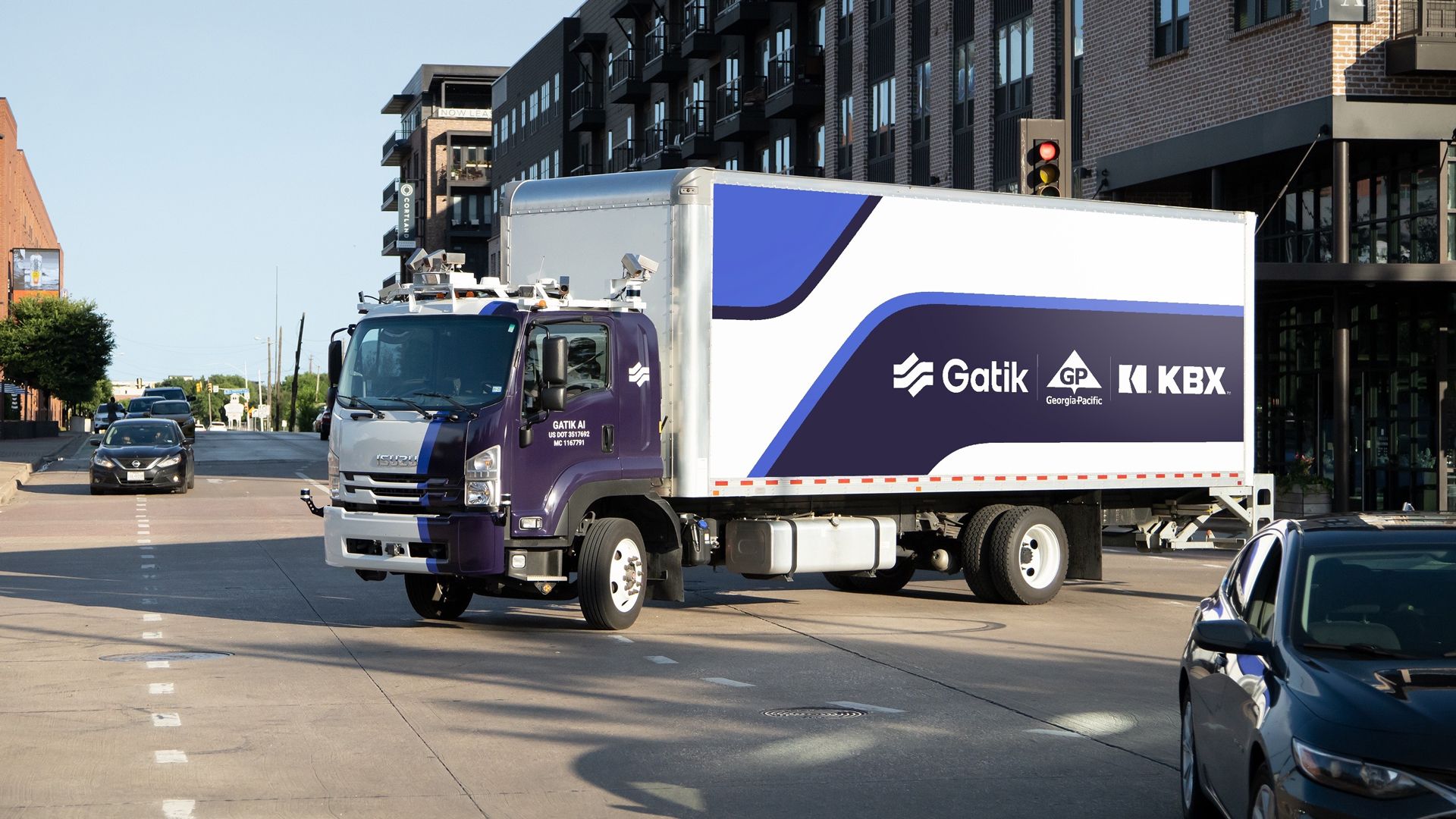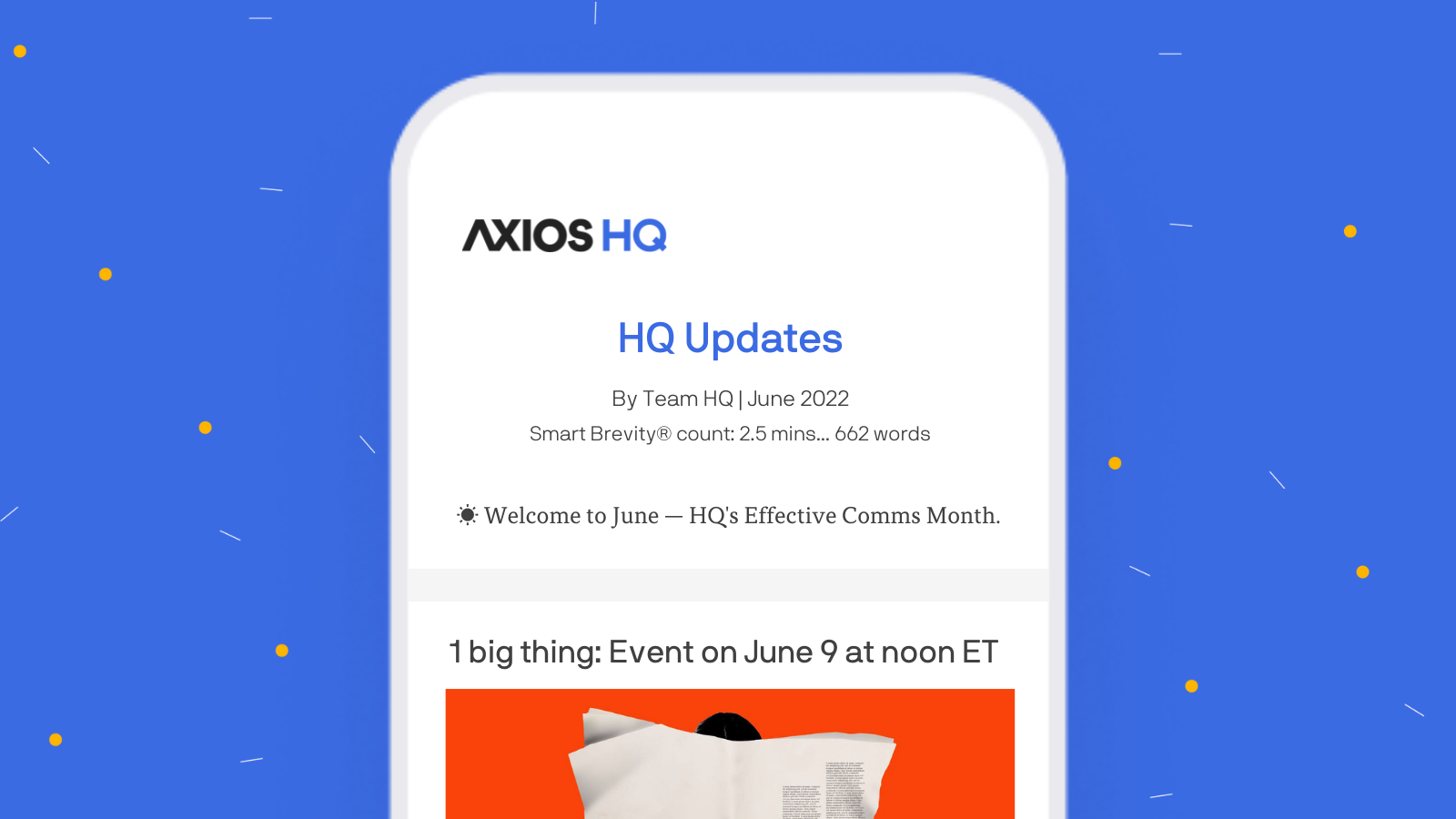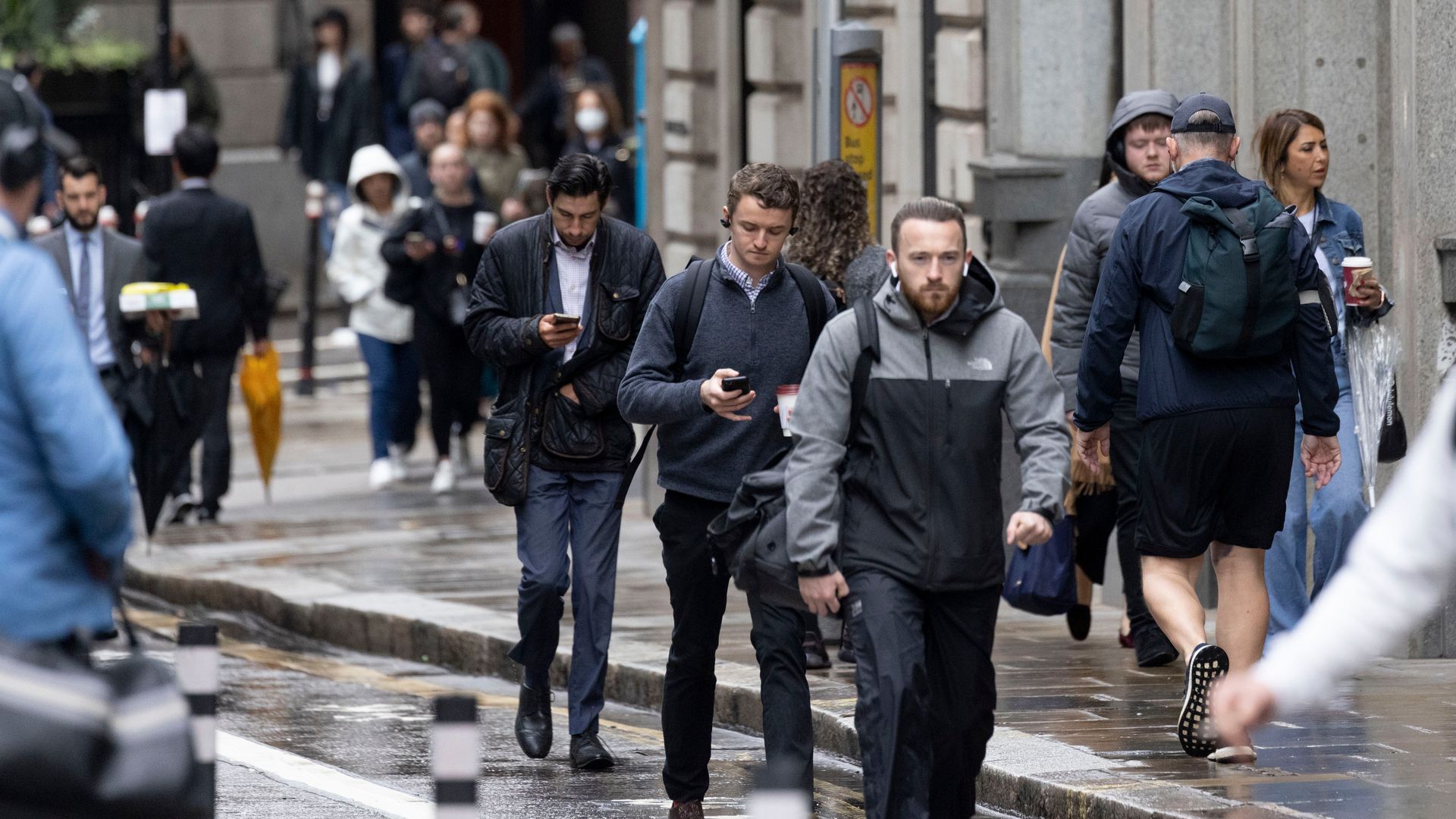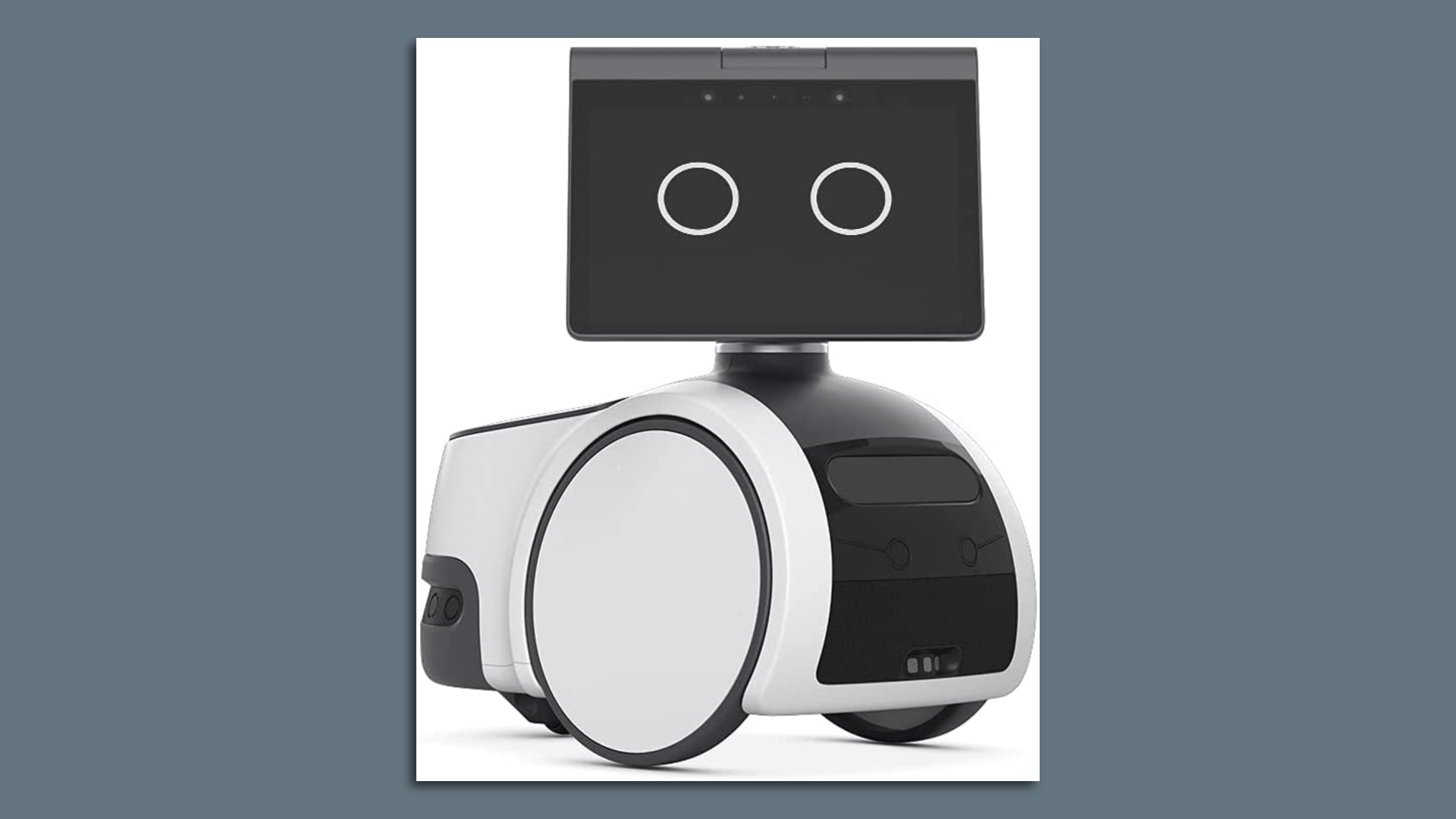| | | | | | | | | | | Axios What's Next | | By Joann Muller, Jennifer A. Kingson and Alex Fitzpatrick · Jun 07, 2022 | | Meaningfully addressing the United States' gun violence epidemic will require major political and cultural shifts that, despite what the majority of Americans say they want, often seem impossible. But maybe technology like artificial intelligence and machine learning can help, as Joann reports below. As she notes, however, it's still early days for these yet-imperfect solutions. - Joann is at UP.Summit in Bentonville, Ark., this week, mingling with CEOs and financiers behind some of the coolest new ideas in transportation, including autonomous trucks, air taxis and more. She'll have coverage throughout the week, starting with the Sam's Club news below.
Today's Smart Brevity count: 1,064 words ... 4 minutes. | | | | | | 1 big thing: AI's answer to mass shootings |  | | | Illustration: Sarah Grillo/Axios | | | | With little Congressional progress on gun control, some envision next-generation weapons detection technologies as a deterrent to mass shootings, Joann reports. Why it matters: If authorities could use artificial intelligence to quickly spot guns or identify potential shooters, they might be able to head off tragedies like the recent mass shootings in Uvalde, Texas, Buffalo, N.Y. and Oxford, Mich. - Given the nationwide spate of shootings over this past weekend, such solutions are more urgent than ever.
Yes, but: Critics say AI surveillance systems are ineffective. - They also worry about other issues, including the technology's record of bias, particularly against people of color.
How it works: Some companies are promoting AI technologies as a less obtrusive and more effective alternative to metal detectors and similar systems. Evolv uses ultra-low frequency electromagnetic fields and advanced sensors to detect concealed weapons as people walk through a portal. - The high-speed screening system is already in use at sports arenas, entertainment venues and theme parks, the Washington Post reported.
- North Carolina's Charlotte-Mecklenburg school system is installing the scanners for $1.7 million over three years.
- It's not foolproof, however: Evolv's system generated false positives from some laptops, according to one analysis.
Hexwave, developed at a Massachusetts Institute of Technology lab, is a similar system using 3D imaging and AI. - It can detect both metallic and non-metallic objects, like 3D printed guns, and plastic or liquid explosives.
- It can also recognize ordinary objects like cell phones, wallets or keys, says Bill Frain, CEO of Liberty Defense Holdings, which licenses the technology.
- Trials will begin in August at five locations, including Toronto's Pearson International airport and Baltimore's Oriole Park at Camden Yards.
ZeroEyes, used by schools in 18 states, integrates its AI software with existing surveillance cameras to identify guns in a camera's field of view. - Images are reviewed by a trained military veteran for verification.
- Within about five seconds, ZeroEyes will issue an alert to school authorities, providing a description and location of the threat — often before any shots are fired, cofounder Mike Lahiff tells Axios.
The big question is whether these systems will prevent future shootings. Share the story. |     | | | | | | 2. Cracking the autonomous "middle mile" |  | | | Gatik's autonomous box trucks will be used to replenish Sam's Club stores in Dallas. Photo courtesy of Gatik | | | | Autonomous trucks developed by Gatik will soon be delivering paper plates and toilet tissue to Sam's Club stores throughout the Dallas-Fort Worth area, Joann reports. Why it matters: It's a new frontier for self-driving truck technology, which has been focused on long-haul semi-truck highway pilots. - Gatik instead is targeting the so-called "middle mile" between distribution warehouses and stores or fulfillment centers.
Driving the news: Gatik today announced a multi-year partnership with Georgia-Pacific, the big paper and pulp company, and KBX, the transportation arm of Koch Industries, to automate part of the companies' delivery network in the Dallas-Fort Worth metroplex. - Starting in July, the driverless trucks will deliver goods 24/7 on pre-defined, short-haul routes across a network of 34 Sam's Club stores.
- By replacing traditional tractor trailers with smaller, autonomous box trucks, Gatik will help Sam's Club and its suppliers replenish stores more quickly while reducing logistics costs, the companies said.
Read the rest. |     | | | | | | 3. The great reshuffling |  Data: Committee for a Responsible Federal Budget, U.S. Bureau of Labor Statistics; Chart: Simran Parwani/Axios There's been a huge shift in the kinds of jobs many Americans are doing, Axios' Courtenay Brown reports, with big gains in some sectors and huge losses in others. Why it matters: In today's red-hot labor market, it's easier for workers to change jobs or careers. But some of the hardest-hit sectors, like health care and education, are particularly vital fields. - Among the big winners: Transportation and warehousing (+709,000 jobs between Feb. 2020-May 2022), no doubt thanks to Americans' endless desire for shipped goods.
- Education and health care — two fields where pandemic-era burnout has run especially high — are some of the biggest losers (-340,000 jobs).
A collision of forces is pushing workers away from some jobs and toward others, including... - The remote work allure: "People want to move out of in-person roles ... and move toward the kinds of occupations and industries with more flexibility," Julia Pollak, chief economist at ZipRecruiter, tells Axios.
- Better pay: "Private sector employers have an advantage in this environment," Pollak says. "They can adjust their compensation plan and policies very quickly."
The bottom line: Transportation and warehousing has never made up a bigger share of the U.S. workforce. But we also need great teachers and nurses, and without better pay, benefits and other incentives, it's unclear how we'll get people to stay in those jobs. |     | | | | | | A message from Axios | | Special series for business leaders and communicators | | |  | | | | Join the Axios HQ team throughout June for conversations with leaders using creative comms to create business alignment and boost engagement and productivity. | | | | | | 4. Four days, same pay |  | | | Commuters yesterday in London. Photo: Jason Alden/Bloomberg via Getty Images | | | | The world's largest four-day work week trial started yesterday in the United Kingdom, Axios' Julia Shapero reports. Driving the news: In the six-month trial, more than 3,000 employees will work four days a week for the same pay. - The trial is a collaboration among nonprofit 4 Day Week Global, the 4 Day Week Campaign and independent research organization Autonomy.
The big picture: The largest previous four-day work week trials were conducted in Iceland with 2,500 employees from 2015 to 2019, according to CNN. - The trials found an increase in employee wellbeing without a drop in productivity.
Yes, but: The four-day work week remains far from the norm. - In January 2022, only 1,700 jobs for every 1 million posted on Indeed.com involved a four-day work week.
Share this story. |     | | | | | | 5. What they're saying: Amazon Astro |  | | | The Amazon Astro. Photo courtesy of Amazon | | | | Astro, a souped-up Alexa on wheels, is Amazon's new attempt at a high-tech home robot. Here's what the reviewers are saying: - "While Astro is a technological marvel, none of its major-use cases resonated with me, and its various attempts at making its presence known — bleeping at you when you walk by, for instance, or camping out in random spots around the house — quickly became grating," says Fast Company's Jared Newman.
- "I didn't run into many bugs or quirks, other than a few times Astro didn't hear me very well and some routines I set up that only triggered sporadically," says Jennifer Pattison Tuohy at The Verge. "But I also didn't find a truly compelling use for Astro that was worth its $1,000-plus price tag."
- "For now, this robot remains a luxury item, for people with a lot of money to try out a cutting-edge technology that still lacks a compelling use case," writes CNET's David Priest.
The consensus: Amazon's on to something interesting here, but it's not ready for primetime just yet — and even Amazon itself understands that, given that it released Astro as what's essentially a beta product. |     | | | | | | A message from Axios | | Special series for business leaders and communicators | | |  | | | | Join the Axios HQ team throughout June for conversations with leaders using creative comms to create business alignment and boost engagement and productivity. | | | | Was this email forwarded to you? Get your daily dose of What's Next magic by signing up for our free newsletter here. |  | It's called Smart Brevity®. Over 200 orgs use it — in a tool called Axios HQ — to drive productivity with clearer workplace communications. | | | | | | Axios thanks our partners for supporting our newsletters. If you're interested in advertising, learn more here.
Sponsorship has no influence on editorial content. Axios, 3100 Clarendon Blvd, Suite 1300, Arlington VA 22201 | | | You received this email because you signed up for newsletters from Axios.
Change your preferences or unsubscribe here. | | | Was this email forwarded to you?
Sign up now to get Axios in your inbox. | | | | Follow Axios on social media:    | | | | | |










No comments:
Post a Comment